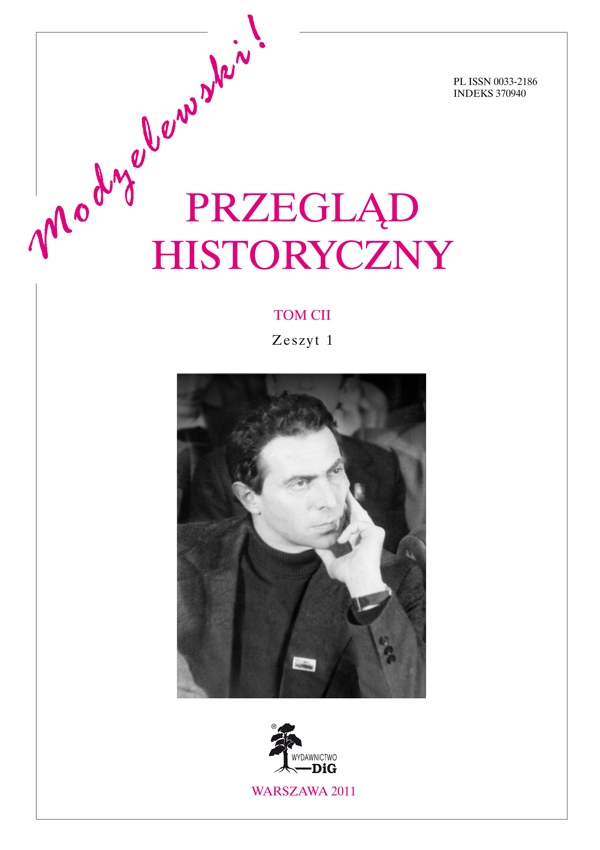Wywiad z Karolem Modzelewskim „Reti Medievali Rivista”, t. XI, 2010, nr 1, http://www.retimedievali.it
Abstrakt
Interview with Karol Modzelewski „Reti Medievali Rivista”, t. XI, 2010, nr 1, http://www.retimedievali.it
Professor Modzelewski’s scientific activity is the focus of the interview conducted with him by Paolo Gugliemotti and Gian Maria Varanini. The interview was originally published by the periodical Reti Medievali Rivista Vol. 9, 2010, No. 1. The text brings forth numerous interdependencies of Modzelewski’s historical research, the first of which was his social background — Polish intelligentsia tinted by communist ideology, persecuted during the Stalinist era. The second aspect discussed in the interview were the conditions of life in communist Poland, a country, in comparison with other states within the Bloc, relatively liberal, where, nevertheless, persons who voiced views politically incorrect were persecuted, and contacts with foreign nationals were treated with suspicion. The third theme of the interview was the milieu of Polish historians and to a certain extant philosophers and sociologists, which after 1945 created in the Polish research institutions enclaves of far–reaching freedom for intellectual studies. This attitude resulted in an elastic approach towards Marxist thought, and a readiness to accept other interesting ideas in research methodology, including the incorporating of the methodology of other disciplines into historiography, chiefly archaeology and ethnology. Another subject touched upon in the interview were the inspiring contacts after 1956 with the learned milieus of France mainly the Annales school and Italy.
In his replies to the questions Professor Modzelewski pointed to the specificity of Central and Eastern Europe, and its influence on the shape of medieval research. This specificity consists in a relative in comparison with Western Europe scarcity of source materials, which forces historians to utilize retrogressive and comparative methods both approaches sometimes allow for usage of sources spread very far apart one from another in time and space. He stressed the importance of these methods for his own research, noticing that they are an important input of the Eastern European historians into the great themes undertaken by their Western colleagues, but at the same time, he observed, they could be also a source of misunderstandings and polemics.
Professor Modzelewski also described the organisation of historical research in contemporary Poland and replied to some of the criticism aroused by his last book Barbarzyńska Europa Barbarian Europe. He commented also that although he always took care to place distinct limits between his political activities and scientific research, he is conscious that the conditions in which he lived had their impact on the treatment and interpretation of historical source materials of the Middle Ages.

